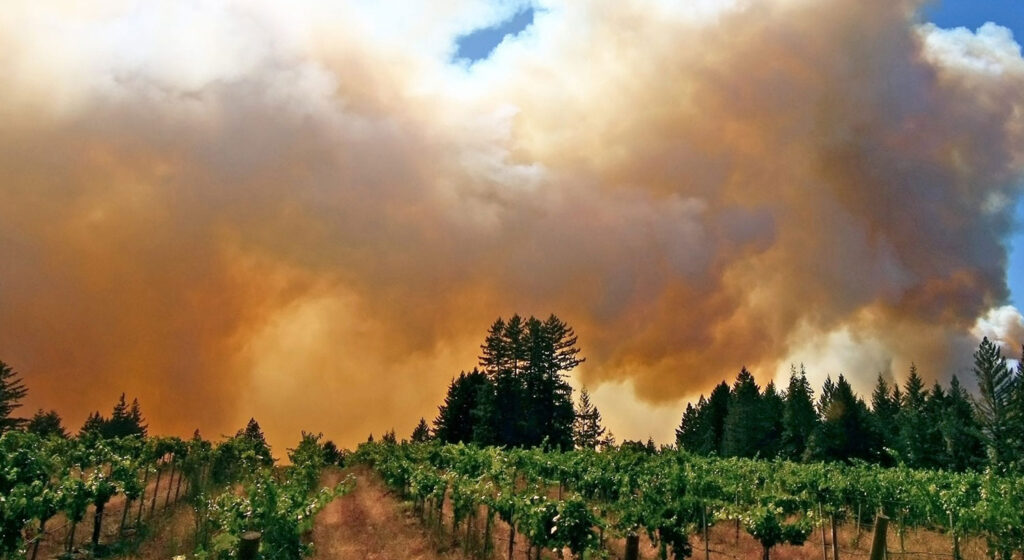IAG has lost a dispute after it denied a NSW vineyard’s claim for the cost of an unsalvageable grape crop after bushfire, saying the loss was caused by smoke not flames and that its policy only covered loss of quantity, not quality of grape berries.
The vineyard held an IAG Wine Grape Growers policy which covered for lost yield of ripe grape berries from fire or hailstone impact.
In declining the claim, IAG said its policy did not cover grape berries unable to be used for their intended purpose of producing wine.
The Australian Financial Complaints Authority (AFCA) ruled the dominant cause of the loss was the fire and IAG must settle the claim.
“This is a Wine Grape Growers insurance policy. The grape berries are grown to produce wine. The fact that grape berries cannot produce wine, even though they still exist, strikes at the very heart of whether they can be called harvestable,” AFCA’s panel of ombudsmen said.
“In the panel’s view, to pick grape berries to throw them away is not to harvest those grape berries.”
The policy defined potential yield as “the harvestable wet yield of ripe grape berries that the insured crop had the potential to produce, at or after veraison, if the insured event had not occurred.” Cover was subject to general exclusions, including loss of quality or grade of grape berries.
AFCA rejected IAG’s arguments that the vineyard was attempting to define harvestable yield as merchantable yield, or that the grapes could be put to an alternative use such as animal feed. It ruled IAG should cash settle the claim and also pay $5000 toward the vineyard’s legal costs.
“If IAG had wanted to exclude coverage for grape berries with smoke taint it could and should have expressly excluded this in the policy,” AFCA said. “The reduction in quality is due to the smoke from the nearby fire. The smoke which impacted the grapes would not have occurred but for the fire proximate to the complainants’ property.
“If IAG had intended that loss caused by smoke was not covered, it could easily have said so.”
AFCA’s panel also said it was concerned that if IAG meant that the policy covered loss of quantity and not the quality of the grape berries, or the profit received from the sale of those berries, “why does the policy not specifically or clearly inform the policyholder of that?”
“The difficulty for IAG is that it has not defined harvestable yield,” AFCA said.
Lightning caused the bushfire near Adelong, NSW, and on New Year’s Eve 2019 the fire reached the wine growers’ property. The owners constructed a fire break nearby which prevented the fire from directly impacting the vines but the grapes, which were yet to be harvested, were exposed to the smoke from the nearby bushland burning.
In February last year, they arranged for the grapes to be tested and it was determined the fruit suffered smoke exposure and was tainted and a total loss.
IAG acknowledged they suffered a significant loss due to the summer bushfires but denied cover, arguing there was no reduction in quantity, only a reduction in quality which the policy specifically excluded.
The grape growers told AFCA they suffered an outright loss as there was no salvage value associated with the smoke-tainted fruit and the policy exclusion did not apply.
AFCA’s panel of ombudsmen ruled IAG must cash settle the claim.
“IAG seeks to rely upon its exclusion for loss of quality or grade of grape berries. The panel accepts that if the loss of quality or grade of grape berries occurred independently of an insured event, IAG would be entitled to rely upon the exclusion. However, the loss of quality or grade of grape berries occurred because of the insured event of fire, the proximate cause of the loss,” AFCA said.
“The panel is not satisfied that IAG is entitled to exclude the coverage the policy clearly provides.”
IAG suggested there may be the possibility of removal of the smoke taint or to use the grapes for alternative use such as feed for livestock but experts said the grapes had no possible salvage value or alternative use.
“As a commercial wine maker … I consider the grapes to have been damaged by smoke to the extent that they have no value whatsoever,” one expert said.
A cattle farmer also provided a statement disagreeing with IAG’s position.
“I would not use wine grapes, whether damaged or otherwise, to feed my cattle. There is very little dry matter in wine grapes and, as a result of the fermentation process in wine grapes, there is a high risk of cattle contracting an illness. Wine grapes are not a suitable course of food for cattle or other stock,” the farmer said.
See the full ruling here.
Contact HDL for further information.

